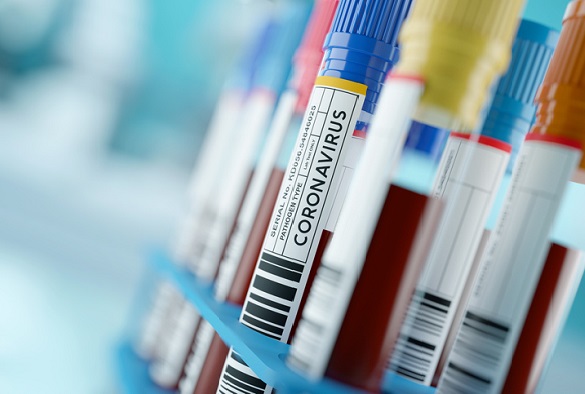A UK-wide trial involving University of Liverpool researchers has found that a drug used to reduce the risk of blood clots does not help patients recovering from moderate and severe Covid – despite this approach being offered to patients.
The HEAL-COVID trial (Helping to Alleviate the Longer-term consequences of Covid-19) is led by Addenbrooke’s Hospital and the University of Cambridge and funded by the National Institute for Health and Care Research (NIHR) and the Cambridge NIHR Biomedical Research Centre. The University of Liverpool’s Clinical Trials Centre (LCTC) and Aparito Limited are collaborators on the trial.
To date, more than a thousand NHS patients hospitalised with Covid have taken part in HEAL-COVID, a platform trial that is aiming to find treatments to reduce the number who die or are readmitted following their time in hospital.
In these first results from HEAL-COVID, it’s been shown that prescribing the oral anticoagulant Apixaban does not stop Covid patients from later dying or being readmitted to hospital over the following year (Apixaban 29.1%, versus standard care 30.8%).
As well as not being beneficial, anticoagulant therapy has known serious side effects, and these were experienced by participants in the trial with a small number of the 402 participants receiving Apixaban having major bleeding that required them to discontinue the treatment.
There was also no benefit from Apixaban in terms of the number of days alive and out of hospital at day 60 after randomisation (Apixaban 59 days, versus standard care 59 days).
Following these results, the trial will continue to test another drug called Atorvastatin, a widely used lipid lowering drug (‘a statin’) that acts on other mechanisms of disease that are thought to be important in Covid.
Professor Carrol Gamble, Director of the Liverpool Clinical Trials Centre said:
“The expertise within the Liverpool Clinical Trials Centre has been crucial for the design, conduct and analysis of HEAL-COVID. The platform trial designed with decentralised follow up required development of bespoke systems and expertise with routine health data and was open in over 100 sites across the UK. LCTC are delighted that the results of this comparison of apixaban with standard care will inform how future patients are treated in the NHS and beyond.”
Chief Investigator for the trial Professor Charlotte Summers is an intensive care specialist at Addenbrooke’s Hospital and the University of Cambridge. She said:
“Having survived the ordeal of being hospitalised with Covid-19, far too many patients find themselves back in hospital, often developing longer-term complications as a result of the virus. There is an urgent need for us to find treatments that prevent this significant burden of illness and improve the lives of so many still being affected by Covid.”
“These first findings from HEAL-COVID show us that a blood thinning drug, commonly thought to be a useful intervention in the post-hospital phase is actually ineffective at stopping people dying or being readmitted to hospital. This finding is important because it will prevent unnecessary harm occurring to people for no benefit. It also means we must continue our search for therapies that improve longer term recovery for this devastating disease.”
HEAL-COVID enrols patients when they are discharged from hospital, following their first admission for Covid-19. They are randomised to a treatment and their progress tracked.
